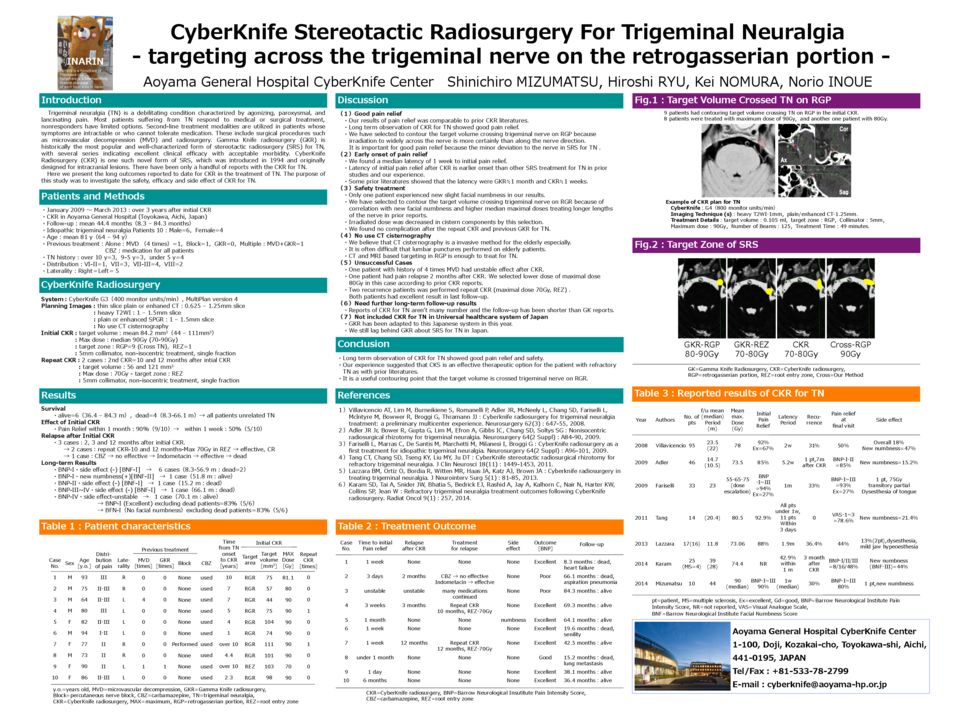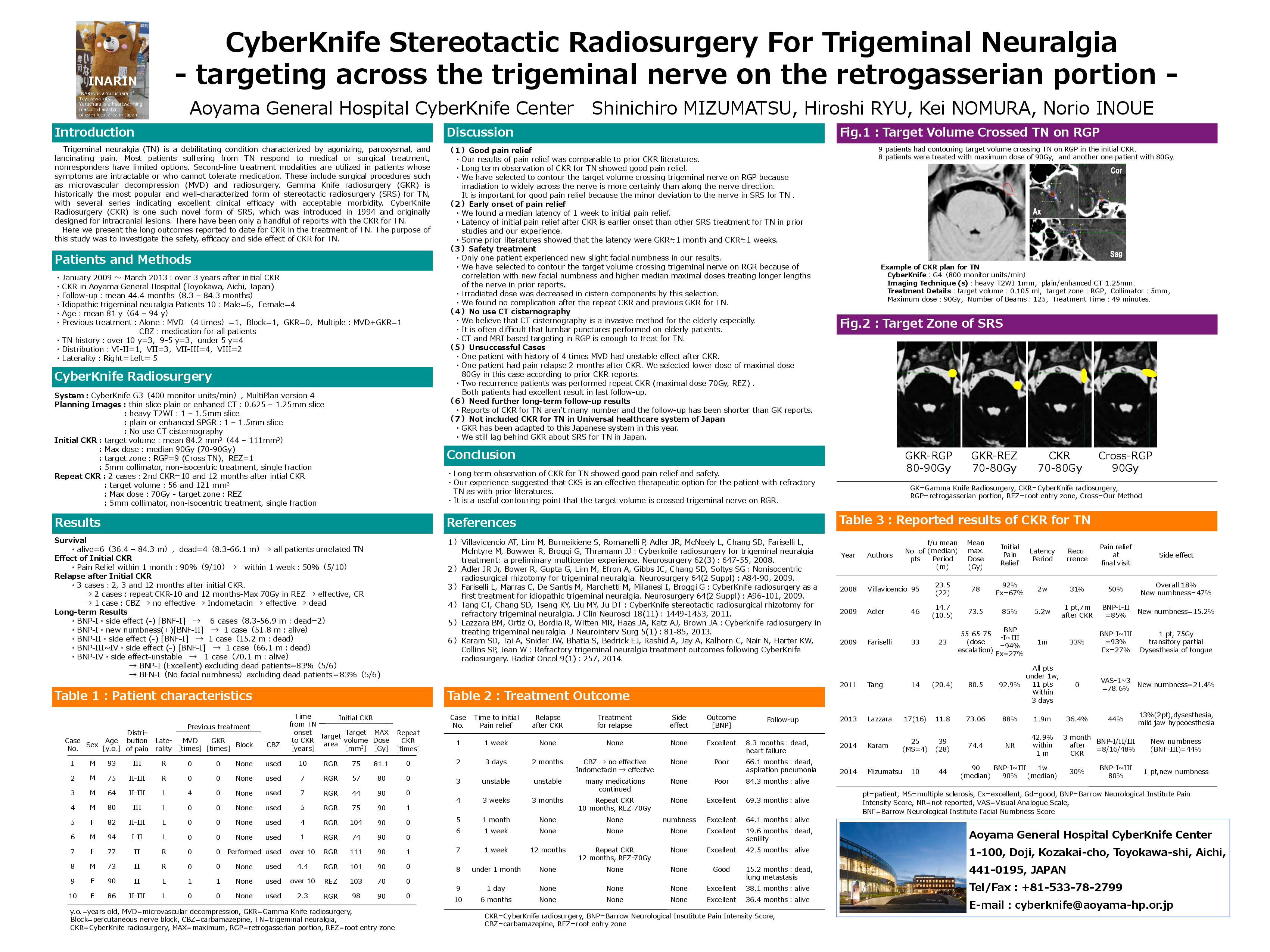Abstract
Objectives
To assess the long term efficacy of CyberKnife stereotactic radiosurgery (CKR) for trigeminal neuralgia (TN).
Methods
Between January 2009 and March 2013, 10 patients underwent CKR for TN at Aoyama General Hospital CyberKnife Center in Japan. Prior therapies included microvascular decompression (n=2), gamma knife radiosurgery (GKR) (n=1), percutaneous nerve block (n=1) and medication of carbamazepine (n=10). Nine patients of the first radiosurgery had target volume across trigeminal nerve on the retrogasserian portion (RGP) in the initial CKR. CKR was performed for these patients targeted at the RGP and for 1 patient after GKR targeted at the nerve root entry zone in the initial CKR. A median maximum dose of 90Gy (range 70-90Gy) was delivered during a single radiosurgical session. There was no case with CT cisternography.
Results
Follow-up data were available for all patients post-treatment median 38 months (8.5 – 70.1months). At the time of analysis, 6 patients were alive and 4 had died due to other causes except to adverse radiation effects. The success rate of initial pain relief was 90% (9/10). A large proportion of patients (50%) reported pain relief within 1 week following CKR. A second CKR was performed subsequently in two patients because of pain relapse. At last follow-up, 7 patients had freedom from any pain and no medication and 1 patient had some pain that was adequately controlled with medications. Only one patient reported side effects of a non-bothersome mild facial numbness. There were no substantial complications related to CKR.
Conclusions
Long term observation of CKR for TN showed good pain relief. CKR yielded an earlier onset of pain relief in our experience and prior literature analysis. These experiences suggested that CKS is an effective therapeutic option for the patient with refractory TN. It is a useful contouring point that the target volume is crossed TN on RGP because of TN covered certainty and shorter targeted TN length.






